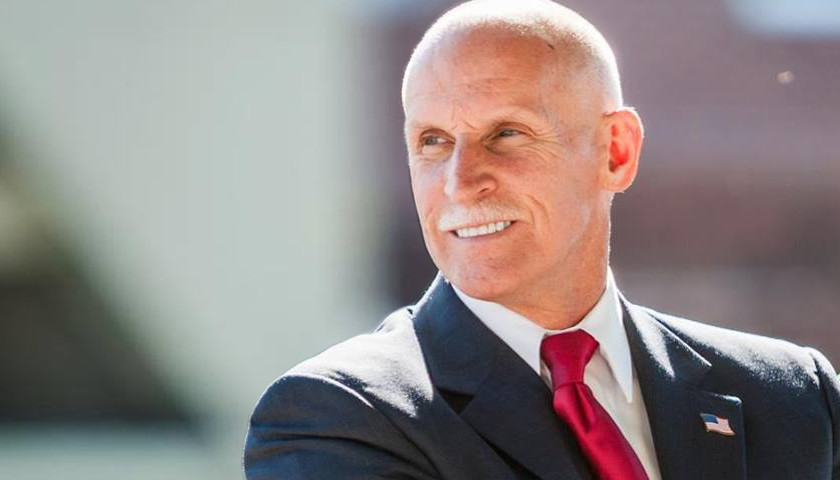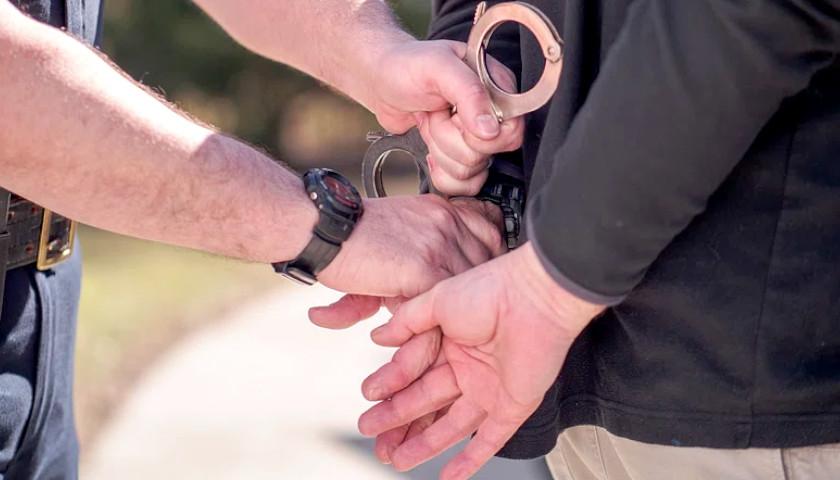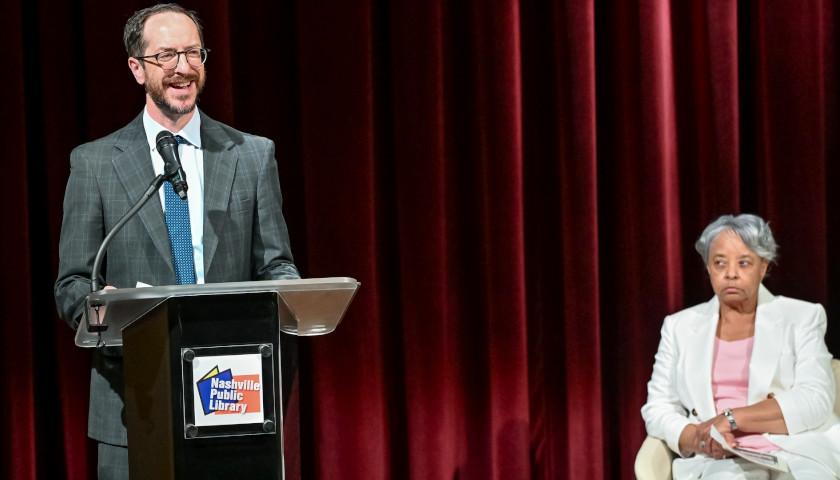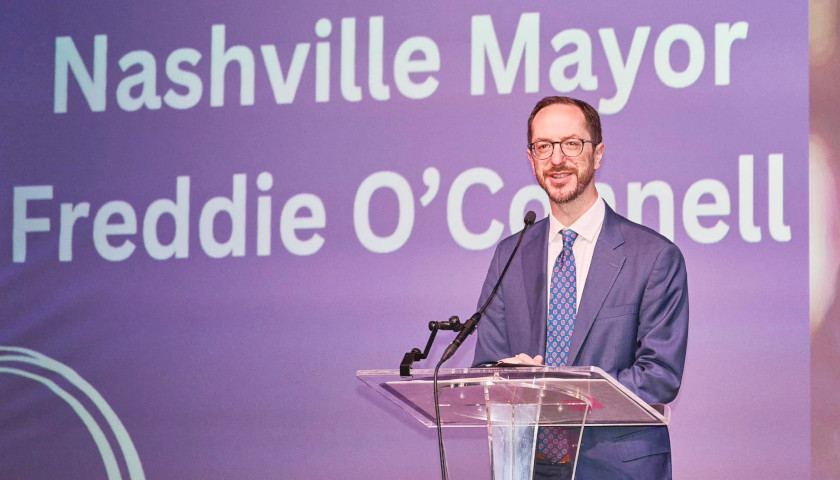In an email sent to dozens of local elected officials ranting about a political rival, Sumner County Executive Anthony Holt, while seemingly trying to conceal a significant property tax increase in 2019, may have actually revealed that intention.
County Executive Holt’s email directed to Sumner County’s County Commission members, other constitutional officers and Gallatin City Council members was under the heading of “Information Regarding County Courthouse Project,” referencing the new, greater than $110 million facsimile of Rutherford County’s new courthouse Sumner County is currently pushing along. The $110 million price tag does not address the identified need of a parking garage, which cost Rutherford County $7 million in 2014 dollars and did not include the land purchase.
The courthouse project is running in parallel to the first phase of a new K-12 school campus on the 265 acres purchased in 2015 in the Upper Station Camp area, approved in a special-called Sumner County School Board meeting on October 30.
A special-called joint meeting of the Education, Budget and Financial Management Committees held on election eve, November 5, expedited the approval of $103 million in debt to advance the school project on to the regularly scheduled full County Commission meeting November 19.
With Sumner County’s current debt at $176.8 million, more than doubling the debt in such a short period of time raises the question of whether the County’s current revenues, made up primarily of property taxes, will be sufficient to support the increased borrowing.

After all, of the 2014 property tax increase that went from $2.08 to $2.50, more than half of it was to fund the $70 million borrowed for school renovation projects. According to a bar chart prepared and presented in a video by Commissioners Paul Goode and Chris Taylor in January 2015, the largest portion of the tax increase, $0.181 of the $0.32 increase was necessary to cover the $7 million in annual debt service for the $70 million borrowed.
At the November 5 Committee meetings, County Finance Director David Lawing seemed to offer a rebuttal to County Executive Holt’s unsolicited assertion that a tax increase would not be required for the school complex.
Lawing reported that the school debt of $103 million would tap out Sumner County’s borrowing capacity until 2024, when another $80 million in debt could be issued. In 2025, an additional $130 million of debt could be issued, according to Lawing. There were no questions asked or explanations offered as to why the debt capacity would so dramatically increase in those two years. However, Lawing did qualify that conservative estimates, without any growth, were used in his analysis.
As if the courthouse might be on the back burner, there was no discussion of how the cost of the courthouse fit into the debt scenario during the joint Committee meetings.
However, just the evening before, a Town Hall meeting was held at the First Baptist Church of Gallatin (FBCG) with the goal of moving along a deal with Sumner County government regarding a proposed property “swap.”
The Town Hall, announced on the FBCG website calendar, started out with a presentation by the taxpayer-funded judicial planner retained by the County nearly two years ago, Judicial Planning Associates, Inc. (JPA) out of Columbia, South Carolina. Much of which was included in their truncated Strategic Plan for Sumner County that is available on the County website. JPA’s full report can only be seen by visiting the County Law Director’s office.
JPA has identified two potential sites for the new courthouse, with Site #1, named for its order of preference, currently being owned by FBCG. After giving a brief overview of their study, JPA President Mike Thomas said of the FBCG property, “We kind of like the identity of having the courthouse right down town.” Thomas added that other location options have “no real identity and no iconic image.”
Thomas, further advocating for a deal between the FBCG and the County consisting of a “swap” of the Church’s Student Ministry Center for the County’s Juvenile Court and Adult Probation buildings, said the courthouse being located on Site #1 would make for a much better neighbor to FBCG.
Conveying a sense of urgency that would imply waiting until the next borrowing window of 2024 is not the plan, JPA’s Thomas said that the County has asked that the FBCG make a decision by the end of December on the property “swap.” Thomas further made his point by saying that delays cost the county money beyond the “escalation factor” his company added for inflation based on their planned two-year design plus a two-year construction period.
There were a variety of questions asked by congregation members over a period of about 20 minutes, including consideration of alternate sites for the courthouse, the location of the parking garage and whether the County would deal with any asbestos issues in the two County-owned buildings proposed for the “swap.”
When the topic of a tax increase came up, JPA’s Thomas responded that he had been told by the County’s General Operations and Financial Committee that the County “will be able to fund the school and courthouse project without a millage increase,” that it’s “a matter of timing.” Thomas added, “And I believe them.”
Long-time FBCG member Dan Downs unexpectedly pointed out “Tax Assessor” John Isbell as being present and possibly able to answer the question about a property tax increase. (The Constitution of the State of Tennessee calls out the office as the Assessor of Property.)
Isbell rose to explain that Sumner County will have a its every five-year property reappraisal in 2019, and that there will be a 25 to 35 percent increase in valuations. Higher property values cannot be used to raise revenues, so Isbell will set a revenue neutral “certified tax rate” to lower the current $2.50 rate to an estimated $1.82, essentially making 2019 property tax bills the same as 2018 bills.
“If they keep the $2.50 tax rate,” alluding to public statements made by several elected officials, “there will be a 25 to 30 percent increase in taxes,” Isbell concluded before sitting back down.
Shortly after, the questions for JPA’s Thomas wrapped up and he and his team left the Church. The Town Hall continued with a presentation and another Q&A session with FBCG’s Courthouse Committee Chairman, Paul Curd.
The issue that received the most attention was what the term “swap” implied when it came to the arrangement between FBCG and the County as well as parking. The point of contention about the building “swap” was that FBCG’s property has a higher value than that of the County. The congregation did, however, agree by voice vote to proceed with negotiations with the County regarding the buildings, with final agreement coming back to the congregation for approval.
Then on Tuesday, November 6, JPA’s Thomas followed up with an email directed to County Executive Holt which he said was to “document some questions and answers from Sunday night’s Town Hall meeting at the First Baptist Church on Main Street.” However, the only question and answer Thomas mentioned was that of the tax rate, detailing Assessor of Property Isbell’s explanation.
Apparently prompted by Thomas’ recount of the Town Hall proceedings, County Executive Holt followed up two days later with his own broadcast email rant to numerous addressees in Gallatin City and Sumner County government that offered no stated objective. While Holt forwarded the email received from JPA’s Thomas, Holt contradicted the information contained in it.
The issue between Holt and Isbell goes back to a similar situation in 2014, when Holt and Director of Schools Del Phillips wanted Isbell to use property value increases in order to raise County revenues. When Isbell refused, a long, drawn-out process initiated by Holt went to the State Board of Equalization, where they could find no wrong-doing on the part of Isbell. However, bringing the County Board of Equalization back into session to conclude the process came at a County Commission approved cost of $46,124 to Sumner County taxpayers while yielding nothing of substance.
In his email, Holt claims, “To my knowledge, there have been no discussions to increase the property tax rate at any time.” Quite obvious is that Holt did not make a statement about reducing the tax rate downward to the revenue neutral certified rate.
The decision by Holt to specifically refer to not increasing the property tax “rate” signals re-adopting the current $2.50 rate even after the 2019 reappraisal increases property values 25 to 35 percent rather than adopting the revenue neutral certified tax rate that will be lowered by Assessor of Property Isbell to his currently estimated $1.82.
Alternatively, in crafting his email, Holt could have chosen to refer to current revenues, the 2019 certified tax rate or simply that property owners would not see an increase in their property taxes to fund the new school projects and the courthouse simultaneously.
Holt, who didn’t exactly receive a vote of confidence in his re-election bid garnering just under 38 percent of the vote during the May 2018 primaries in a three-way contest that included Isbell, called Isbell’s statements “irresponsible and deceitful.”
Holt missed the opportunity in his email to recommend that County Commissioners, the true tax assessors in the County, address the issue of debt capacity and a property tax increase themselves.
As the taxing authority in the County, the Commission has yet to lay out and publicize to Sumner County taxpayers a transparent and comprehensive funding plan for the more than $200 million in school and courthouse projects that are being expedited through the approval process.
The property tax increase that would go along with continuing the $2.50 tax rate after the 2019 reappraisal’s significant growth in property values would be extraordinary, especially when it would come on top of the 24 percent property tax increase in 2014 approved through special-called meetings that caught Sumner County taxpayers unaware on the eve of mid-term elections.
The full text of the emails from County Executive Anthony Holt and Judicial Planning Associate Mike Thomas can be read here.
[pdf-embedder url=”https://tennesseestar.com/wp-content/uploads/2018/11/Anthony-Holt-email-exchange-County-Courthouse-project.pdf”]
– – –
Laura Baigert is a senior reporter at The Tennessee Star.
Photo “Anthony Holt” by facebook.com/anthony.holt.925






No tax rate in excess of the certified tax rate may be levied by the county legislative body until a resolution or ordinance has been approved by county legislative body according to the following procedure:
(1) the county legislative body must advertise its intent to exceed the certified tax rate in a newspaper of general circulation in the county a of Notice of Intent to Exceed Certified
Tax Rate
(2) the county mayor must, within 30 days after publication, furnish to the State Board of
Equalization an affidavit of publication;
(3) a public hearing must be held on the issue, and
(4) the county legislative body, after the public hearing, may adopt a resolution or ordinance levying a tax rate in excess of the certified tax rate.
If the resolution or ordinance is approved it must be forwarded to the county board of equalization and the State Board of Equalization.
In a revaluation year any rate proposed by the county mayor and adopted by the county legislative body is a vote for a real tax increase.
Will they follow these rules to raise property taxes? I have my doubts. Some on the commission seem to do whatever they want when they want.
You need perspective on this topic. We came here after over 30 years in NY. Our assessed property value was twice what our current house is and the property taxes where over 10 times what they are today. Three quarters of the taxes went to supporting the school system with the remaining for county and town. The question becomes do you believe there is real return of value (quality of life, etc.) for the taxes you pay?
There are two I can guarantee will vote to increase property taxes and those are Andy Holt and Caroline Kreuger. Take it to the bank!